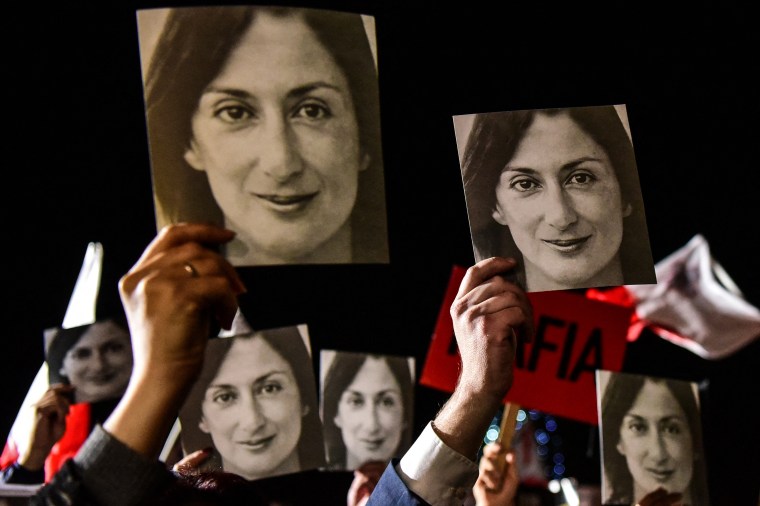Last week’s indictment of businessman Yorgen Fenech marked a critical step in the quest for accountability in the murder of Maltese investigative journalist Daphne Caruana Galizia.
According to news reports, Malta’s attorney general has called for a life sentence plus an additional 20 to 30 years behind bars for Fenech, the alleged mastermind of the 2017 bomb attack that killed Caruana Galizia, a prominent blogger and reporter. Fenech has pleaded not guilty.
Before her death, Caruana Galizia reported on a company in Dubai that she alleged was connected to Maltese politicians. A Reuters investigation later found that Fenech owned the company, but noted that he declined to confirm that he owned it.
The indictment came shortly after the release of the findings of a public inquiry into the killing, which said that Maltese authorities “created an atmosphere of impunity, generated by the highest echelons.”
In 2021, one man pleaded guilty to taking part in the killing and was sentenced to 15 years in prison; the two other alleged killers and Fenech will stand trial; and legal proceedings against the alleged bomb suppliers are ongoing.
CPJ spoke via phone with Caruana Galizia’s sister, Corinne Vella, head of media relations for the Daphne Caruana Galizia Foundation, whose mission is to ensure the “public interest of full justice” for the journalist’s killing. This interview has been edited for length and clarity.
CPJ emailed the Malta prime minister’s office for comment but did not receive a reply.
What is the family’s reaction to the formal charges against Yorgen Fenech?
The indictment is a turning point in the pursuit of justice. This is a case involving a man who was arrested in November 2019 and his case has been in the pre-trial phase until last week. Now the bill of indictment moves the criminal case one step forward. The accusations are now formal and he will be standing trial although that will not happen for several months.
In July, Malta published the results of a public inquiry into the assassination. What were the most important takeaways?
For us the most important was that it found that Maltese state bears responsibility for the murder: the campaign against Daphne was orchestrated from within the prime minister’s office and that the prime minister at the time [Joseph Muscat, who resigned in 2019 amid a political crisis surrounding the murder] was responsible for the failings of the state.
The report concluded that there existed a culture of impunity for the corruption, the wrongdoings of people she exposed, and that this was part of the risks she faced. People who planned and executed Daphne’s assassination felt that they could literally get away with murder. I think that in that sense, in my opinion, this culture of impunity has not been completely resolved.
The report also has recommendations on how Malta can strengthen protections of journalists, journalism, and freedom of expression.
For us it means that the report recognized Daphne’s work and in a broader sense journalism as a public service. There are also important lessons for Malta in that report: the state must create an environment to enable journalists to do their work, it has a responsibility of not only protecting journalists but also preventing risks to their safety from arising in the first place. We would like to see an independent commission set up to lead the implementation of effective and lasting change, in conjunction with a parliamentary select committee [a committee set up for special purposes].
The current prime minister, Robert Abela, apologized to the Caruana Galizia family for the state’s role in creating the environment that led to the murder and pledged to look into implementing the report’s recommendations. What do you think Malta should do to honor Daphne’s legacy?
I think it is too soon to tell what will actually happen with the public inquiry’s recommendations, because the report arrived shortly before August, and parliament is closed so for the moment very little has happened. From September we hope to see that the key recommendations concerning the creation of an environment that enables journalists to do their work are treated with urgency. An apology is owed to the country too. However, action should follow words.
